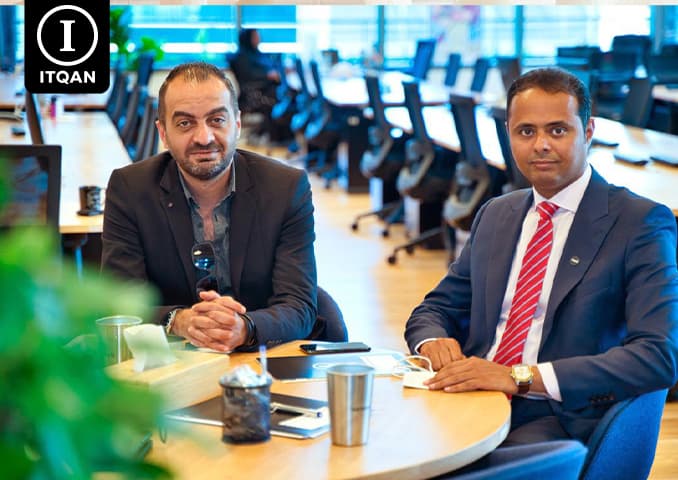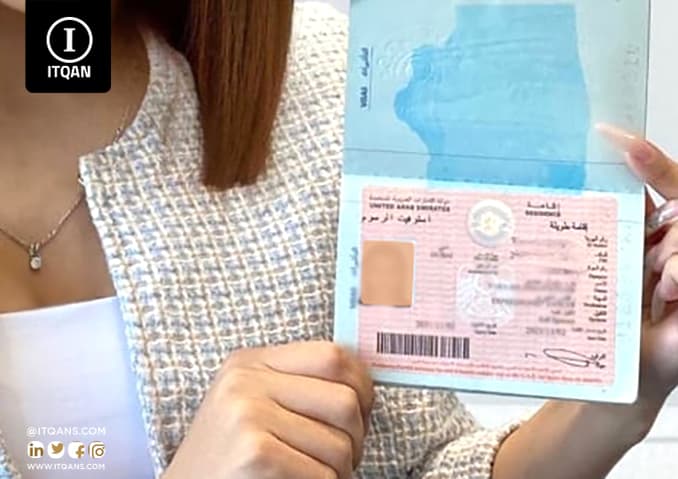Ras Al Khaimah is considered one of the seven emirates that make up the United Arab Emirates, and is distinguished by its strategic location and advanced infrastructure that make it an attractive destination for investors and businessmen. Establishing a company in Ras Al Khaimah offers many unique advantages, from competitive costs to easy access to global markets.
Ras Al Khaimah offers an ideal business environment with encouraging government policies and easy legal procedures aimed at facilitating the process of establishing companies in Dubai . The emirate offers a wide range of free zones that meet the needs of various economic sectors, ranging from trade and services to industry and technology. Thanks to advanced infrastructure and high-level logistics services, companies can benefit from rapid connectivity with local and international markets.
Ras Al Khaimah offers investors the opportunity to benefit from tax and customs exemptions, which enhances the ability of companies to achieve greater profits and sustainable growth. In addition, the emirate offers a range of incentives and facilities that include easy access to commercial licenses and residency, as well as ongoing support from government agencies.
Through this article, we will discuss the detailed steps for establishing a company in Ras Al Khaimah, including legal and administrative requirements, and review the benefits and opportunities that investors can reap when they choose this vital emirate as the headquarters for their business. Whether you are thinking about starting a new project or expanding your existing business, you will find in Ras Al Khaimah an ideal environment that combines reasonable costs with promising opportunities for growth and expansion.

Establishing a company in Ras Al Khaimah
جدول المحتوى
ToggleSteps to establish a company in Ras Al Khaimah
To establish a company in Ras Al Khaimah Free Zone , you need to follow a number of basic steps. Here’s an overview of the steps to follow:
- Choosing the type of company: Decide what type of company you want to establish, such as a sole proprietorship or a limited liability company.
- Choosing a Company Name: Make sure that the company name you choose complies with the laws and regulations of Ras Al Khaimah.
- Determine location and address: Specify the company’s location and registered address in Ras Al Khaimah.
- Arrangement of partners and shareholders: If there are partners with you in the company, you must arrange the relationships and determine the shares of each person.
- Preparing the necessary documents: This includes a copy of the passport of shareholders and partners, the completed form for registration, and the company’s articles of incorporation.
- Submitting an Application: Submit a company registration application to the Department of Economic Development in Ras Al Khaimah, and you may also need to submit some additional documents depending on the type of company.
- Payment of fees: Make sure to pay all required fees to the Department of Economic Development in Ras Al Khaimah.
- Obtaining a license: After reviewing the application and documents, you will receive a company license if the application is approved.
- Registration in the Municipality: After obtaining the license, you may need to register the company in the Ras Al Khaimah Municipality, in order to obtain a business license.
- Legal Advice: It is always recommended to consult with legal counsel to ensure compliance with all local laws and regulations.
Costs of establishing a company in Ras Al Khaimah
The costs of setting up a company in Ras Al Khaimah vary depending on the type of company and business activity chosen, and include:
- Registration and licensing fees: This includes the costs of the company registration process and obtaining the necessary licenses to start the business.
- Legal consulting costs: Legal consulting services may be required to prepare documents and ensure compliance with local laws.
- Government services fees: These fees include services provided by government agencies such as submitting applications and processing transactions.
- Rental costs and geographic location: Rental costs for offices or commercial space may include, and vary depending on location within Ras Al Khaimah.
- Insurance and license fees: Costs may include insuring property and equipment, and obtaining the necessary licenses to start the business.
Documents necessary to establish a company in the free zone
To establish a company in a free zone in the UAE, the required documents usually include the following elements:
- Company incorporation document (incorporation contract): The incorporation contract is an official document that specifies the type of company, shareholders’ responsibilities, shares, and any other special conditions.
- Registration form (registration request): This form contains comprehensive details about the company such as the trade name, type of activity, and details of shareholders and managers.
- Passports and photographs of shareholders and directors: Copies of valid passports of shareholders and directors, in addition to recent photographs, must be submitted.
- Authorization from shareholders: A formal authorization from shareholders may be required for a specific person to represent them during the company incorporation process.
- Additional government approvals (if necessary): In some cases, free zones may require special approvals from the relevant government agencies, such as the General Authority for Islamic Affairs and Endowments or the General Authority for Corporate Media.
- No objection certificate (for residents only): If one of the shareholders or directors is a resident of the UAE, a no objection certificate from the residence authority may be required.
Commercial activities permitted in the free zone
In the Dubai Free Zone, a variety of business activities are offered that companies based there can undertake. These activities include, but are not limited to:
- General trade: including import and export of various products.
- Manufacturing: for manufacturing activities related to various industries.
- Financial services: such as banking, insurance, and asset management.
- Logistics services: such as warehousing, distribution and supply chain management.
- Consulting services: in areas such as engineering, technology and marketing.
- Modern technology: including software development and modern technologies.
- Educational services: such as educational institutes and vocational training.
- Tourism and hospitality: including hotels, restaurants and tourism services.
- Research and development: in various technological and scientific fields.
- Medical services: including health care, pharmacy and medical services.
Strategies to attract investments and expand business in a free zone
Strategies for attracting investments and expanding business in a free zone depend on several vital factors, including infrastructure, legislative policies, and tax and customs benefits. Here are some effective strategies:
- Improving infrastructure and logistics services: Invest in infrastructure development to provide an advanced operating environment, such as transportation facilities, ports, airports, and integrated logistics services.
- Simplifying administrative and legislative procedures: Providing easy and efficient registration and licensing procedures for new companies, which reduces administrative costs and accelerates the establishment and expansion process.
- Providing attractive tax and customs benefits: Providing tax exemptions such as exemption from taxes on profits for specific periods of time, and customs facilities such as obtaining equipment and materials at low prices or exempt from customs duties.
- Providing support services for emerging and medium-sized companies: Providing specialized support programs for emerging and medium-sized companies, such as government financing, training, and strategic consulting to enhance their growth and success.
- Strengthening international contacts and business networks: Create strong networks with international institutions and foreign investors, through participation in trade fairs, seminars, and trade missions, to attract foreign direct investment.
- Developing specific economic sectors: Focus on developing specific sectors such as technology, renewable energy, and smart manufacturing, by providing special advantages that attract investors specialized in these industries.
- Promoting transparency and combating corruption: Promoting transparency in government operations and combating corruption, which enhances investor confidence and makes the free zone an attractive destination for investments.
In conclusion, establishing a company in the Ras Al Khaimah Free Zone represents an important strategic step for ambitious investors seeking to benefit from the encouraging and stimulating business environment in the United Arab Emirates. Ras Al Khaimah offers unique investment benefits, such as tax exemptions, low operational costs and advanced infrastructure, making it an ideal destination for startups and international companies alike.
By carefully following the legal and administrative steps, investors can establish their companies quickly and easily, while benefiting from government support and facilities provided. Establishing a company in Ras Al Khaimah is not only limited to entering a promising local market, but also opens doors to access global markets thanks to its strategic location and excellent transportation network.
The most frequently asked questions about establishing a company in Ras Al Khaimah
What types of companies can be established in Ras Al Khaimah?
People usually ask about the different types of companies such as limited liability companies, sole proprietorships, and unlimited liability companies.
What are the expected fees and costs for establishing and operating the company?
Individuals are interested in understanding the main costs of setting up and running a business, including registration fees, rents and other administrative costs.
Can foreigners obtain full ownership of their company?
This case raises inquiries about ownership conditions and laws for foreigners in Ras Al Khaimah, especially with regard to obtaining the necessary licenses and permits.
What tax and customs benefits are available to businesses in Ras Al Khaimah?
Investors are looking for tax and customs exemptions that can help them reduce costs and increase the company’s profitability.
We are usually asked about the financial and legal obligations that new businesses must comply with, such as filing financial reports and adhering to tax regulations.
We are usually asked about the financial and legal obligations that new businesses must comply with, such as filing financial reports and adhering to tax regulations.
What logistics and support services are available in Ras Al Khaimah for new businesses?
Investors are interested to know about the logistics facilities available and government support for startups in Ras Al Khaimah.

















